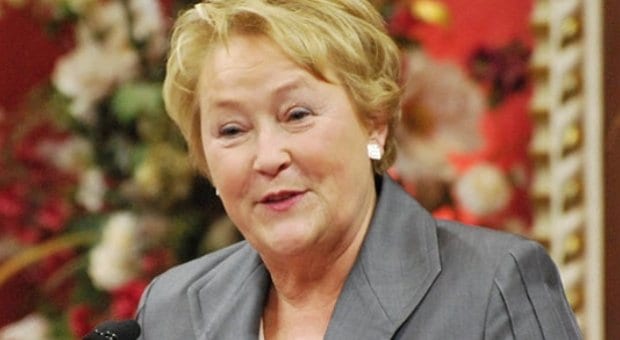When Pierre Karl Péladeau pumped his newly anointed Parti Québécois fist for sovereignty in March, he might as well have been talking about sexual liberation.
Not that Péladeau has given any indication that he supports sexual liberation. But like sexual liberation, sovereignty is both the end game and potentially the greatest liability of a cultural movement that has earned enormous gains without managing to ultimately dislodge the governing social system.
When the Parti Québécois stepped onto the political scene in 1968, it was the product of profound social upheaval. The Quiet Revolution was barely eight years old but had already transformed a conservative, Catholic Church–driven, anglophone-dominated province into a more modern, more egalitarian state with access to education and healthcare and a reemerging sense of pride in being French Canadian.
The revolution’s lead architect, Liberal premier Jean Lesage, had, with his natural resources minister, René Lévesque, nationalized foreign-owned hydroelectric plants throughout the province and begun training francophones to take over engineering and other positions previously held by anglophones. Wealth and decision-making power finally began to shift, though a royal commission inquiry in 1963 would find that francophones, representing 80 percent of Quebec’s population, still earned only 64 percent of their anglophone counterparts’ salaries.
Carving spots in places of power was essential but not enough. Nurturing French Canadian culture and breathing new life into its language became paramount, especially as it became clear that francophones submerged in English-speaking Canada outside Quebec were rapidly losing their language.
Lévesque soon parted with the Liberals and launched the Parti Québécois, committed both to strengthening Québécois language, culture and independence within the province and, ultimately, to creating a separate state no longer outnumbered by anglophones in the rest of Canada.
In the years since, the party has made enormous gains within the province: Québécois culture is strong and pervasive; francophones are now better educated and have access to the highest-paying jobs; music, films and even the most vacuous homegrown TV shows celebrate and reflect Québécois realities.
Yet as a direct result of these significant gains, the separate state now seems unnecessary and nearly impossible. To even suggest it during an election campaign is political suicide.
Not unlike sexual liberation. Once a goal of the gay liberation movement — to transform society as a whole to embrace all forms of sexual pleasure and relinquish its uptight fixation on sin — we have settled largely for carving spots for ourselves, and to some extent our culture, within existing institutions. Rather than challenging marriage, for example, we demanded our share of its sanctioned rights and responsibilities.
Nothing wrong with demanding our due, whether it’s equal access to education, jobs and decision making in Quebec or equal access to job protection and spousal benefits in straight society. But is it enough? What happens when a cultural movement wins significant gains without transforming the overall structure that surrounds it?
The latest incarnation of the Parti Québécois shows what can happen when a movement that has made huge gains loses direction. How do you keep nurturing the culture you were created to protect once you’ve strengthened it enough to survive in a world where it’s still, nonetheless, a minority?
Do you try to squash others to further strengthen your own position?
Do you keep pushing for transformational change in a world now prepared to recognize your existence and even, occasionally, to shift some of its norms to acknowledge your own?
Or do you keep carving and nurturing the spots within, content to contribute, slowly, maybe, to reshaping the bigger picture over time?
As the cultural revolutions born in the 1960s win impressive gains within potentially greater losses, it’s no wonder many of us find ourselves at a crossroads.
Robin Perelle is the managing editor of Xtra Vancouver.

 Why you can trust Xtra
Why you can trust Xtra


